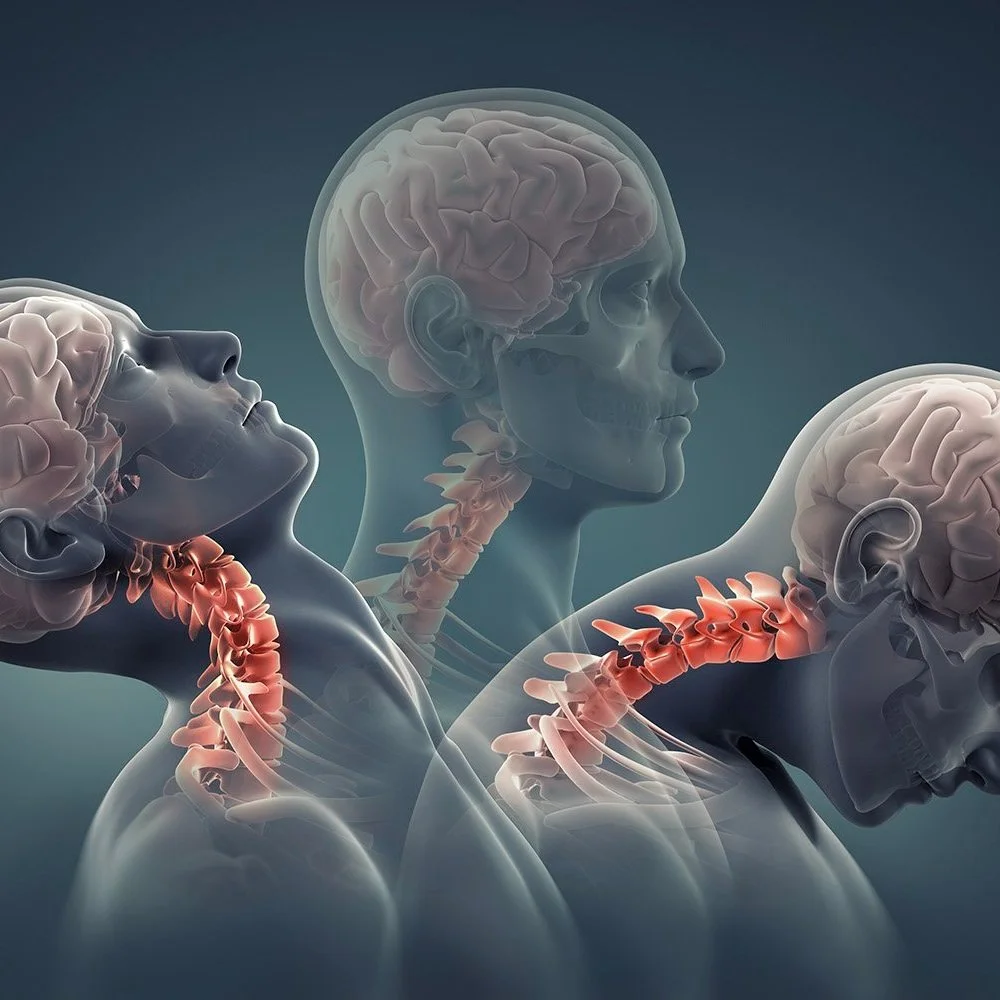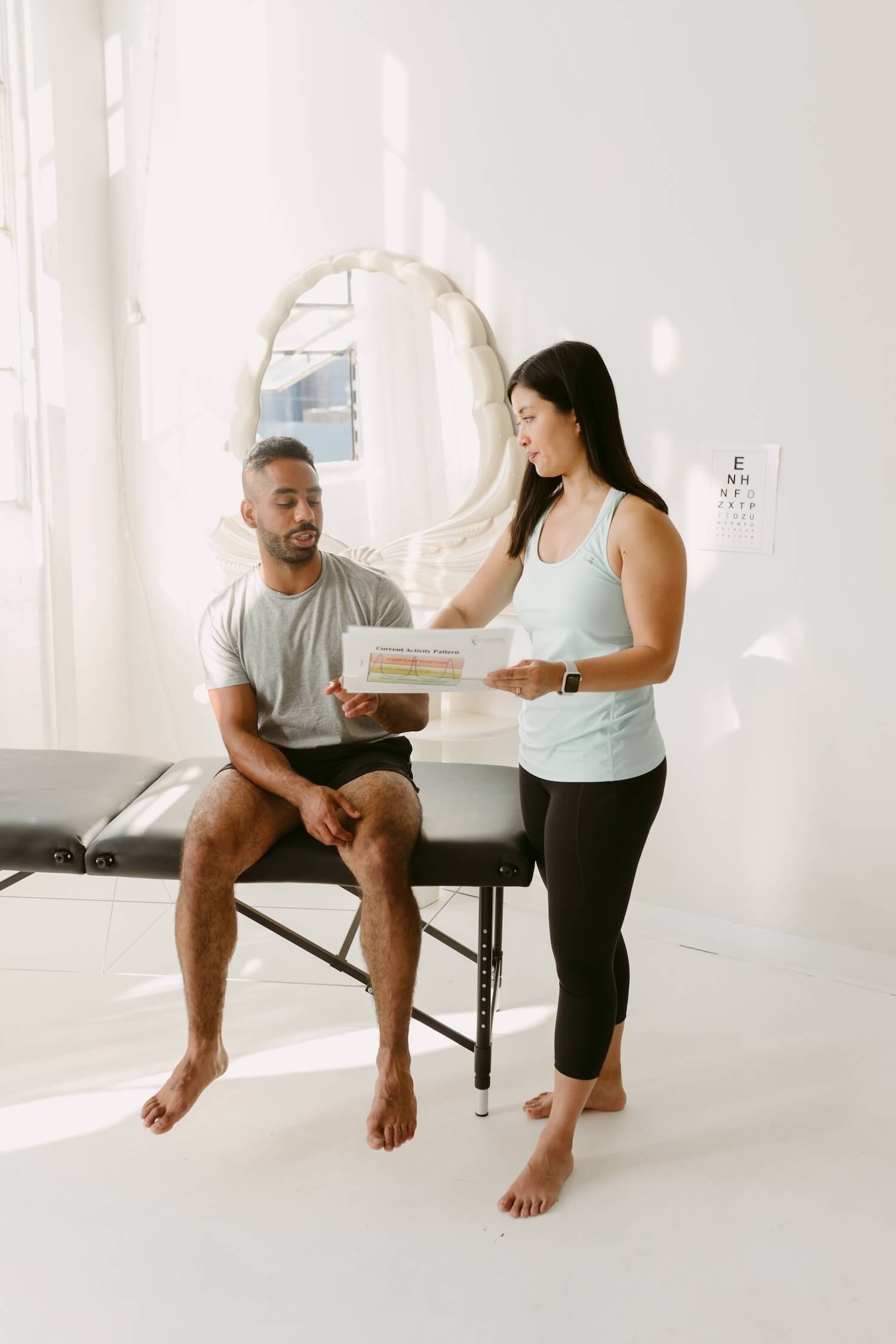Concussion Treatment
for post-concussion symptoms after a brain injury

Concussion Rehab
is a comprehensive treatment approach designed to address the diverse symptoms associated with concussion or brain injury. These symptoms include headaches, dizziness, vertigo, blurred vision, visual motion sensitivity, cognitive and emotional challenges, and exercise intolerance.
Evidence-based physiotherapy assessment and treatment are provided for individuals aged 18 and older who require education and management for a recent concussion injury, or for those experiencing persistent symptoms, known as post-concussion syndrome.
Each concussion is unique, so my treatment approach is tailored to meet the individual needs and specific symptoms of each patient.
Physiotherapy for Acute Concussions
If you seek treatment within the first few weeks or months after a concussion, you can recover more quickly from your injury. This can also reduce the likelihood of symptoms returning and help you return to work, school, sports, or other activities as soon as possible.
Physiotherapy for Persistent Post-Concussion Symptoms
If you have been experiencing concussion symptoms for several months or years after your injury, it is still possible to receive treatment and improve your condition. Treatment focuses on identifying the specific areas that are still affected, which may include:
Cervical Spine: Issues like neck pain or stiffness related to a whiplash injury.
Visual and Vestibular Systems: Symptoms such as blurred vision, difficulties reading, dizziness, vertigo, and balance issues.
Physiological and Autonomic Nervous System: These can affect blood pressure, heart rate, and exercise tolerance.
Psychological and Emotional Symptoms: These may warrant a referral to the appropriate therapist for support.
Cognitive Issues: Challenges related to thinking and memory, which may also benefit from consultation with a specialized provider.
By addressing these specific areas, you can work towards alleviating your post-concussion symptoms.
What is a concussion?
A concussion is a type of traumatic brain injury caused by external forces, leading to various symptoms and functional issues. It does not always involve a loss of consciousness.
A concussion can occur in any of these situations:
A direct impact of the head against a stationary object, such as a fall resulting in the head hitting the ground
A direct impact of an object on the head, such as from a ball during a sport
Quick acceleration and deceleration of the head, such as during a whiplash injury in a car accident
Post-Concussion Symptoms
A concussion can result in a wide range of symptoms that can be present for several weeks, months, or years. These symptoms can include:
COGNITIVE (THINKING/ REMEMBERING)
Difficulty thinking clearly
Difficulty making decisions
Slowed thinking
Poor focus and concentration
Easily distracted
Forgetfulness and difficulty remembering new information
EMOTIONAL (MOOD)
Irritability and easily annoyed
Feeling depressed or sad
Poor frustration and easily overwhelmed
Feeling anxious or tense
PHYSICAL
Headaches
Vision problems, blurring, trouble seeing
Nausea
Dizziness
Light and/or noise sensitivity
Balance and coordination problems
Fatigue and having low energy
SLEEP
Sleeping more than usual
Sleeping less than usual
Trouble falling and/or staying asleep
Following a concussion, a brief period of rest is recommended for the first 24-48 hours, and then it is encouraged to become gradually active without significantly triggering your symptoms (this involves staying below cognitive and physical symptom exacerbation thresholds). Speak to a healthcare professional to determine your symptom exacerbation thresholds.
If your symptoms last longer than the natural recovery period of the first 14 days, then treatment for persistent post-concussion symptoms can be helpful. Depending on which symptoms you are still experiencing, you can benefit from one or many of the following concussion treatment techniques.
Post-Concussion Treatment













